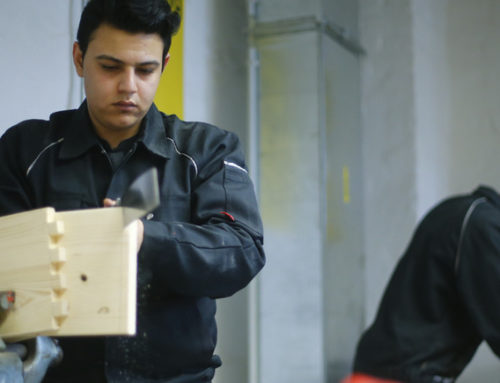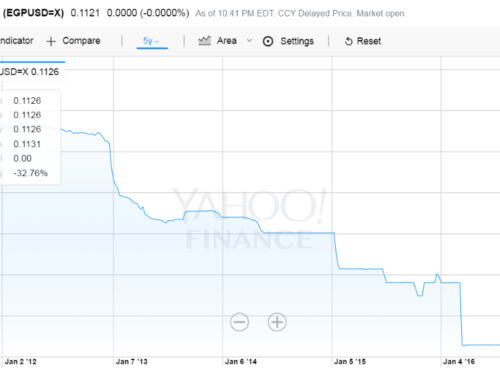
The visible displeasure of Moroccans over the past week has shaken the government all the way up to the top: The almighty king of Morocco was compelled to issue a declaration after days of protests, backtracking on a decision he had taken a week earlier.
It seems that popular pressure does work. Sometimes.
At the heart of the controversy — “Daniel Gate,” as it’s come to be known in Morocco — is Spanish man in his early sixties, Daniel Galván Viña, who was found guilty in September 2011 of sexually assaulting children and sentenced to 30 years in prison. His 11 victims were as young as four-years old at the time. The main pieces of evidence in his trial were the videos of the rapes that he filmed himself.
The pardon came at the request of Spanish King Juan Carlos II, who requested the monarch’s grace for 48 imprisoned Spaniards. How and why Galván was included in the list remains unclear; but in any event, the king acquiesced to the request in late July. Moroccan royalty have a history of issuing pardons on holidays. Galván was pardoned on July 30, commemorating Morocco’s “Throne Day,” the anniversary of King Mohammed VI’s accession to the throne.
Rightfully angered, Moroccans organized protests countrywide. They protested not only Galván’s release, but also the recent increase of sexual tourism, child abuse, and the system that allowed Galván’s pardon to happen both unbeknownst to the country’s judiciary and against the will it expressed less than two years ago.
Unfortunately, the state dealt with the protests in the only way it knows how: police violence. Not only in the capital Rabat, where thousands protested in front of the parliament, but also in Tanger, Tetouan, and in the city of Kenitra where Galván was imprisoned. The violence not only incensed the protesters further (naturally) but also revealed itself as a lost opportunity for the government to align itself with the people (for once) around the cause of protecting children from abuse. Rather than siding with Moroccans, the state exposed itself to direct criticism as being the defenders of pedophilia, especially when it comes to foreign criminals; a very unsavory position to find themselves in indeed.
The debacle and its potential for escalation led the king to intervene — twice. First, on Saturday, August 3, the royal palace issued a statement which stated that “His Majesty King Mohammed VI, may god help him, was never informed in any way nor at any time, of the gravity of the heinous crimes for which the person was convicted” and that naturally the king wouldn’t have agreed to release him had he known. The statement ends with promises of a full investigation into how it came to be that Galván was released.
The very next day, after the first communiqué failed to calm protests, King Mohammed VI revokedthe pardon altogether and asked his minister of justice to address the issue with his Spanish counterpart. By then Galván had already returned to Spain.
Two days later, Galván was arrested by the Spanish police. It is unlikely that he will be extraditedback to Morocco, but he may serve the rest of his sentence in a Spanish prison. Meanwhile in Morocco, the king is meeting with the families of Galván’s victims and public anger is subsiding slightly. But the fallout from the public outrage will remain.
The king’s cancellation of his pardon may have succeeded in deflecting some of the popular anger, but his role in the debacle will remain under public scrutiny, as the entire institution of the royal pardon is coming under heavy fire. While it has become common practice for the monarch to issue pardons on national holidays, the process remains opaque. Renowned columnist Sanaa Elajiwrites that “we all know the pardon has become a lucrative card in the hand of mafia that sells this grace at prices varying according to the crime”; she goes on to assert that in any event, there are no known regulations for the royal pardon, no legislative check, no clear person responsible for the pardon lists, and no crimes that are deemed too egregious to be beyond the king’s grace.
Many local and international news outlets are now suggesting that it really was an honest mix-up; the list of criminals to be pardoned was merged with a list of those to be extradited to Spain as per a 1997 agreement between the two countries allowing Spanish prisoners in Morocco, and vice versa, to be repatriated to serve out the rest of their sentence. The theory goes that since the king truly didn’t know the particulars of the names on his list that he ended up freeing the entire lot. El Pais also suggested [Sp., Fr.] that turf wars between the ministry of justice and the Royal Palace were the reason behind the mix-up. This is unlikely to ease the tensions of protesters who will attempt to maintain pressure to extract, at the very least, reforms in the royal pardon process.
The problem however is that this case is not the first royal pardon of foreign pedophiles. Moroccan activists and media have uncovered a 2010 WikiLeaks diplomatic cable detailing Morocco’s problem with human trafficking and sexual abuse. The cable references a report from the NGO Touche Pas A Mon Enfant (Hands Off My Child) that mentions the case of two French pedophiles who got away with an initial slap on the wrist before being pardoned by the king and sent home, most likely in honor of Morocco’s 50th year of independence. Galván was probably the first such criminal to ever receive a serious sentence.
Another brewing scandal connected to the same list of pardoned criminals involves a drug dealersentenced to 10 years in prison. He was freed after having done less than a tenth of his time; a twist of fate that surprised even his father.
Further political repercussions will unavoidably follow. As opposition parties and activist groupscondemned Galván’s pardon and the institutions that allow such things to happen, their protests were also very critical of the government, the Makhzen and even the prime minister whosesilence was viewed as a desire to not to upset the Royal Palace.
The dust will settle promptly enough, but Daniel Gate won’t be swept under the rug any time soon.
First published at Foreign Policy: Transitions.



